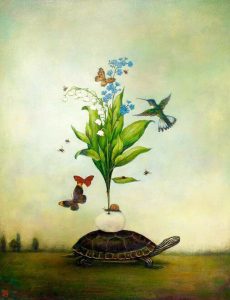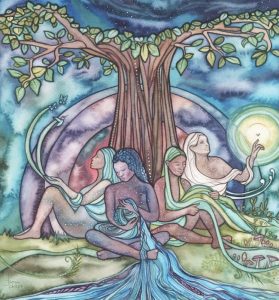 The Yogabliss, Your Heart Life on-line Moving into Meditation classes met this morning. We practiced mindfulness, forgetfulness and remembering. We practiced coming back to ourselves, each other and the world again and again. We explored sounding and finding our heart’s song.
The Yogabliss, Your Heart Life on-line Moving into Meditation classes met this morning. We practiced mindfulness, forgetfulness and remembering. We practiced coming back to ourselves, each other and the world again and again. We explored sounding and finding our heart’s song.
We heard David Budbill’s poem, Apple Blossoms, from his collection Happy Life. David’s work is inspired by his life in rural Vermont: “cutting wood, putting a vegetable garden to bed and bird song. Check out his web-site to survey his writings including: poems, plays, novels, stories, essays and a libretto for opera. Much of his work reflected his deep caring about social justice. He lived fully, mindfully, simply.
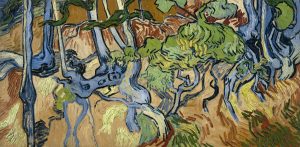 We heard Mary Oliver’s poem, Mysteries, Yes from her collection, Evidence. (You can also find it in the beautiful collection, Devotions.) In this poem Mary insists on living with the beauty of mystery and the uncertainty of not-knowing. And like so much of her work, she remains present and alive to the surprises of life’s full expression.
We heard Mary Oliver’s poem, Mysteries, Yes from her collection, Evidence. (You can also find it in the beautiful collection, Devotions.) In this poem Mary insists on living with the beauty of mystery and the uncertainty of not-knowing. And like so much of her work, she remains present and alive to the surprises of life’s full expression.
We drew inspiration from Maria Popova’s essay, Philosopher Martin Buber on What Trees Teach Us about Being More Human and Mastering the Difficult Art of Seeing Others as They Truly Are. This is a beautiful writing about how we meet each other with love and presence.
Thank you for coming together for the practice of mindfulness today. Mindful presence brings us to life, to each other, to the world around us. It takes patience and willingness to be with the truth of our experience. We can also bring presence and patience, caring and compassion to the beings and the world that we love. And when we forget, we remember and begin again.
Can you set an intention to set aside thinking about the past and the future? Let go of memories or plans? Let’s start by taking a few deep breaths. You might roll your shoulders and move your neck or shift your body from side to side, forward and back. I invite you to consciously give yourself time, space and the permission to be.
You might sense your body. Notice those places where it touches the ground or the chair. Can you give t your body over to Earth’s support? I invite you to explore relaxation. Notice your face: the areas around of your brow and eyes, jaw and lips. And what about relaxing your neck, your shoulders, arms and hands? Even as you let the breath be easy, just as it is; can you also sense the strong muscles and bones of your back holding you up? What is it like to be relaxed and awake?
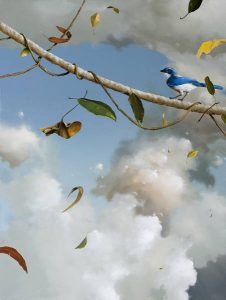 I invite you to tune into the sensations of breathing. Notice where and how you feel the breath. Can you let it come to you as you breathe in and let it go as you breathe out, effortless and intimate . . . If it’s uncomfortable to follow breathing you can bring the same quality of attention to other sensations or sound. Can you let your whole body be receptive?
I invite you to tune into the sensations of breathing. Notice where and how you feel the breath. Can you let it come to you as you breathe in and let it go as you breathe out, effortless and intimate . . . If it’s uncomfortable to follow breathing you can bring the same quality of attention to other sensations or sound. Can you let your whole body be receptive?
And there you are, ready to notice your mind wandering, doing what the mind does. Can you welcome this moment of awakening, knowing that you’re back? Mindfulness returned. Awareness present. In welcoming the return of awareness, we encourage our desire to be mindful and present.
What is like to be Alive and aware? It might be a recognition like Zen poet David Budbill describes as:
Apple blossoms
swell and bloom
and fall.
No one can
escape
old age.
Can we also have compassion for those of us who swell, bloom and fall?
There is magic in beginning again. There may be curiosity and openness in not knowing how the next breath with feel. Breathing in. Breathing out. Can you enter the unknown? Meet life just as it is?
As Mary Oliver writes in her poem: Mysteries, Yes
Truly, we live with mysteries too marvelous
to be understood.
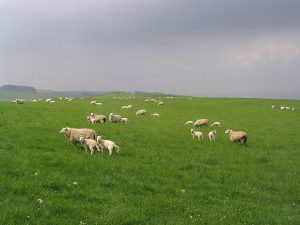 How grass can be nourishing in the
How grass can be nourishing in the
mouths of the lambs.
How rivers and stones are forever
in allegiance with gravity
while we ourselves dream of rising.
How two hands touch and the bonds will
never be broken.
How people come, from delight or the
scars of damage,
to the comfort of a poem.
Let me keep my distance, always, from those
who think they have the answers.
Let me keep company always with those who say
“Look!” and laugh in astonishment,
and bow their heads.
We meet mysteries big and small every one of our days. See what it’s like to simply receive one in-breath allowing it to gently blossom and swell; to come to it’s fullness and then to end. Each moment is a new beginning. Each moment contains seeds of possibility when we’re willing to let go and begin again. What do you need to release – like the out-breath – in order to live?
 Meeting ourselves in mindfulness we ready ourselves to meet an other person with presence. We don’t know how the meeting will unfold or how this being will reveal themselves. We might truly sense this person – as an autonomous being – with their own hopes, fears, dreams, desires, joys and sorrows. We might experience the tender vulnerability that we all share.
Meeting ourselves in mindfulness we ready ourselves to meet an other person with presence. We don’t know how the meeting will unfold or how this being will reveal themselves. We might truly sense this person – as an autonomous being – with their own hopes, fears, dreams, desires, joys and sorrows. We might experience the tender vulnerability that we all share.
Perhaps the more we become aware of ourselves – the more we become aware of the world around us. Philosopher Martin Buber wrote that all real living is meeting. Mutuality is when we encounter another individual truly as a person, not as an object for use. In this encounter we become fully human. Right now we can reflect on the last time we met someone. What we were doing? Who were we with? How did it feel to really see someone? To really listen to them? Did you feel seen and heard? Did you feel a tremor of uncertainty in bringing so much of yourself to another? Could you sense the unknown in this person? The unknown in yourself?
We reach across the unknown in relating to one another. We open our hearts and minds. We may even be willing to be changed by what we see and hear. To be fully present with the people we love is a gift. We see them and allow ourselves to be seen. In mindful, heartfelt presence, we come together, we join our imaginations in empathy and caring.
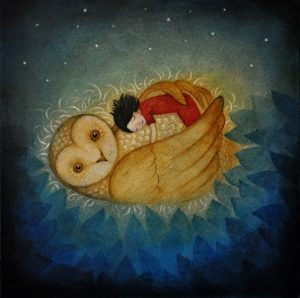 And if this seems too much to ask of ourselves in these troubled times we can rest in presence. We rest and remember to remember. Each moment is a new beginning. Each moment contains possibility when we’re willing to let go and begin again.
And if this seems too much to ask of ourselves in these troubled times we can rest in presence. We rest and remember to remember. Each moment is a new beginning. Each moment contains possibility when we’re willing to let go and begin again.

